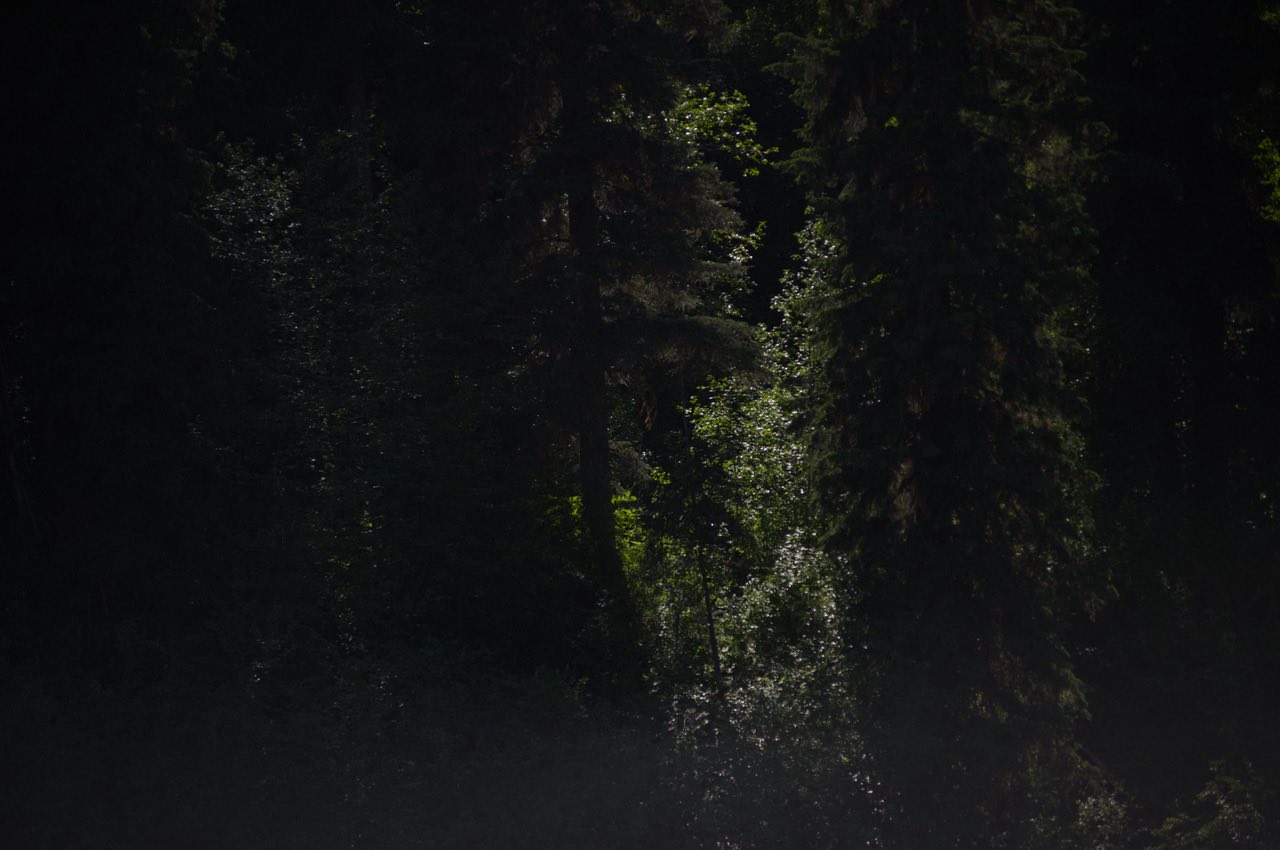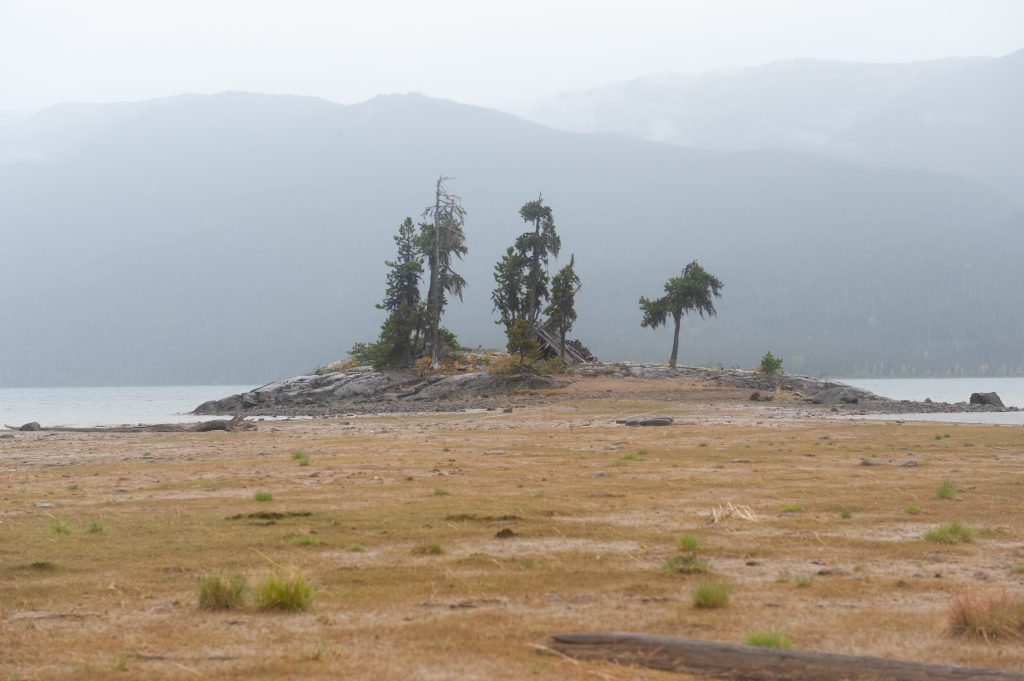If you’d prefer to listen to these words, you can find a recording here.
Wandering amidst the drifting cottonwood fluff is like sleepwalking through a warm snowstorm. The fuzzy white puffballs float lazily through the hazy, dreamlike air, tossed by the breeze this way and that before falling finally to line the ditches and coat the forest floor. When one comes close, the tiniest breath pushes it away and up in a spinning, twirling dance. It’s times like these I feel the tug of the seasons, a gentle yet insistent pull. Spring yields to summer and I yield to the passage of time, settling in knowing that I am part of it all.
We are seasonal creatures.

Despite our best attempts to corral time itself, tracking the rhythms of our lives with measurements and mathematics, tricking ourselves with artificial lights and industrial calendars, every cell in our bodies is hardwired to respond to the sun, light and dark, cold and warmth. A recent paper in the science journal npj Digital Medicine details work by University of Michigan researchers on how human physiology shifts with the seasons — and what can happen when we try to avoid that natural rhythm.
“A lot of people tend to think of their circadian rhythms as a single clock,” senior author Daniel Forger said. “What we’re showing is that there’s not really one clock, but there are two.”
Two clocks. One that responds to dawn and the other to dusk. Two clocks, seeking balance with the cycles that guide all life on Earth.
When I opened up my email, scrolling through embargoed press releases, newsletters and dozens of doom-laden missives, this study caught my eye, not because it felt like groundbreaking scientific discovery (check out the very complicated New Scientist article challenging the idea of mass extinctions for a recent example of that) but because it was so obvious. Of course we are seasonal creatures.
Like all forms of life on this planet, we are subject to its whims, its cycles and its changes, subtle and profound. For a brief time in our collective history, we have more or less successfully built a world apart from the world. The marking of the minutes and charting of the Earth’s rotation and orbit around the sun are remarkable achievements in observational, astronomical and mathematical science. And yet, like every tool our species has developed, it can serve us or corrupt us. In this case, we unwittingly separated ourselves from our true nature — and our cells protest, with depression, anxiety and confusion.
“Genetic polymorphisms linked to speeding up or slowing down intracellular timing can affect overall circadian rhythms, and even our ability to adjust to daylight saving time,” the authors write.
Polymorphism is when a gene carries two or more possibilities, a useful thing for adaptation to changes in the environment. (Think Darwin’s finches, evolving different traits each perfectly suited to its surroundings.) Here, it means some humans are genetically predisposed to respond more strongly to natural cycles than others. As Forger and his colleagues write, “heightened sensitivity to seasonal cues may contribute to circadian misalignment in response to irregular schedules.” Put another way, some people really do need more sleep in the winter — it hits harder for some of us.
But even if we’re not among those predisposed or working jobs that keep us under artificial lights long after the sun drops below the horizon, we are all subject to the shifting of the seasons — and we can all benefit from paying closer attention to those changes.
“When humans are exposed to natural lighting conditions, their melatonin rhythms encode dawn and dusk,” the paper says, referencing a study of more than 68,000 participants in Japan whose sleep increased about 40 minutes from summer to winter.
We change with the seasons.

This is something I’ve felt in my body for a long time, without being able to fully pin it down. I live in the north and in the summer, I am often happy going for a walk at 11 at night or working on a project outdoors until well after I’d usually eat dinner. Conversely, in the winter I can curl up by the wood stove after eating an early meal and find myself drifting off hours before I plan to go to bed.
The older I get, the less it bothers me — but it used to. I would rail against the tiredness, arguing with myself and feeling shame for not being productive: I should be doing something, not just sitting here on the couch, dozing. These days, I’m relaxing into a deeper truth that our idea of time is just that — an idea — and my body knows what’s good for it. Our cells crave connection with natural cycles.
The fluff slowly drifts past as I sit beside the river at the bottom of the trail. I can feel and see and hear her seasonal flow. Deep swirling greens as the browns of spring sediment start to settle, still fast in the early heat, she’s in a hurry right now. Later she will quiet and slow, gently nourishing the land, her many-coloured gravel banks gradually surfacing. And later still she’ll freeze and rest, tired cracks groaning as she stretches every now and then, yawning in the pale winter sun.
— Matt Simmons
Please consider forwarding this message to four friends. Together, we can create space where we collectively slow down, reconnect with what matters and seek out, find and uplift solutions. If you want to support the process of building this community, financially or in other ways, reach out to editor@aspenmag.ca.